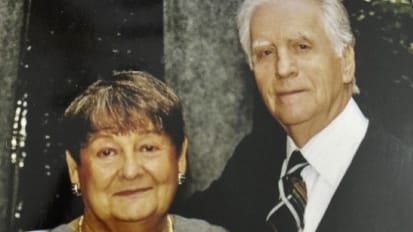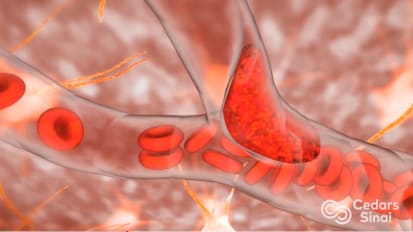Search Videos and More
 Video
Video
Neuroendoscopic Resection | Cedars-Sinai
Neuroendoscopic resection is the idea of removing a tumor using an endoscope to visualize the anatomy, Dr. Adam Mamelak explains. Video
Video
Climate Change: The Brain | Cedars-Sinai
Cedars-Sinai neurologist Dr. Nancy Sicotte shares how climate change affects the brain. Video
Video
About the Neurology Residency Program | Cedars-Sinai Academic Medicine
The Neurology Residency Program at Cedars-Sinai is a dynamic, graduate medical training program built on a collegial atmosphere, with close teaching relationships between residents and nationally recognized faculty. News
News
Cedars-Sinai Creates Computer Models of Brain Cells
Using Artificial Intelligence, Cedars-Sinai Neuroscientists Create Realistic and Complex Computer Models of Individual Brain Cells, Paving the Way for Experiments Not Possible in the Lab News
News
Experimental Vaccine for Brain Cancer Shows Preliminary Evidence of Generating an Immune Response
A vaccine created by scientists at Cedars-Sinai produced an immune response in some patients against a deadly brain cancer known as glioblastoma and may have prolonged patients' lives. News
News
Q&A: Dementia Expert Dr. Zaldy Tan
There is no cure for Alzheimer’s disease, the leading cause of dementia. And since the number of Alzheimer’s patients in the United States is expected to triple over the next 40 years, improved treatments and prevention are more crucial than ever, says Dr. Zaldy S. Tan, director of the Bernard and Maxine Platzer Lynn Family Memory and Healthy Aging Program, and medical director of the Jona Goldrich Center for Alzheimer’s and Memory Disorders at Cedars-Sinai. Here, Dr. Tan, a leading memory and aging specialist, shares his vision for the future of dementia care. News
News
Cedars-Sinai Gifted $10M to Create Memory and Aging Program
Donation from Maxine Platzer Lynn will advance memory and healthy aging care at Cedars-Sinai. Podcast
Podcast
Pioneers in Medicine with Dr. Gewertz: Specialized Care for Brain Tumors Drives Quality Outcomes
In this “Pioneers in Medicine” episode, Keith Black, MD, shares how he built an expert team of neurosurgeons who drive this idea forward, subspecializing in particular tumors to make sure patients receive the highest quality care and achieve the best outcomes possible. Video
Video
Signs of Stroke
What are the signs of a stroke? Dr. Shlee Song shares what to look for and what to do if you suspect someone is having a stroke. News
News
Neurologist to Lead New Cedars-Sinai Headache Clinic
Nasima Diana Shadbehr, DO, Brings a Holistic and Collaborative Approach to Treating Patients With Chronic Headache News
News
A Trial for Every Brain Tumor: Novel Approaches to Immunotherapy and Precision Medicine
A Trial for Every Brain Tumor: Novel Approaches to Immunotherapy and Precision Medicine News
News
Expert Team Uses Latest Tech to Advance Spinal Fusion
Neurosurgeons at Cedars-Sinai are making a difference in patients’ lives through sophisticated instrumented spinal fusions. With the highest volume of spine cases in Los Angeles County, Cedars-Sinai is equipped with innovative, best-in-class technological tools, including an advanced surgical robot, and supported by deeply experienced and specialized care teams.